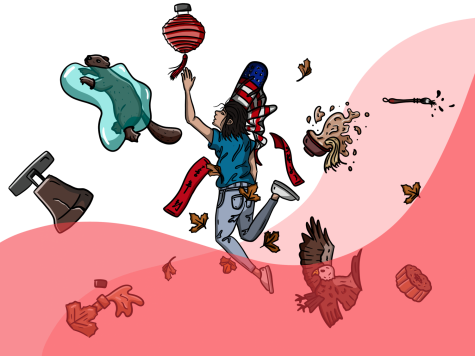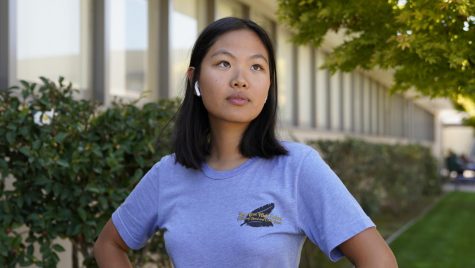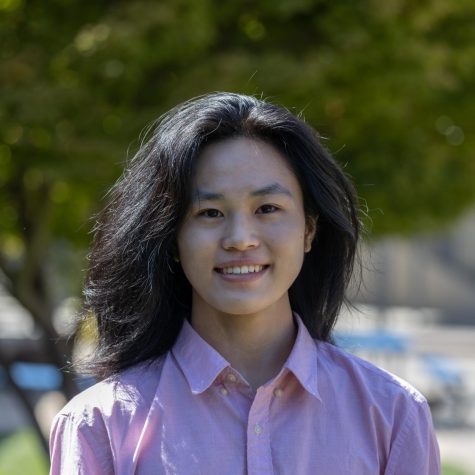Call me by my name
March 1, 2020
To the rest of the world, I’m Cathy. To my family, I’m a Cathy that sounds more like Kessie.
“Kessie,” we’ll call her, was born, surprisingly, around the time I was—about four years after my family immigrated from China to Canada. My family, still relatively new to English, couldn’t pronounce the “th” sound, so Kessie became their name for me.
But Kessie was quickly pushed to the side when my family moved to a little town in Kansas in 2005. Leawood, Kansas, with a 3.97 percent Asian population, would go on to cause a lot of pain. Each and every day, I was made painfully aware of the things that set me apart from my light-haired, blue-eyed peers. I was surrounded by kids that asked me if I ate dogs, if I could see, if the Vietnamese girl (whose last name was most definitely not Wang) was my sister, or if the nonsense noises they babbled at me meant something in Mandarin. For 13 years, I was made to feel like I didn’t belong in the place that raised me. For 13 years, I was taught to see my race as nothing more than a hindrance to my life, the thing holding me back from acceptance and happiness.

It’s been years since I moved away from Kansas, but I still struggle to reconcile being Chinese and American, to define what exactly that means for me and accept it. For a long time after coming to California, I told myself I had somehow resolved years and years of confusion and self-hatred simply by being surrounded by more people that looked like me—by finally seeing myself accepted and represented in a positive light. The reality was that I was settling for an easy solution, afraid to truly look into myself, define who and what exactly I am and be thoroughly proud of my culture.
Solace came, oddly, while I was feverishly working on college applications. I had asked my sister for feedback on what I’d written so far. She obligingly called, told me I needed to start my essays over, and left me so I could start reworking everything I’d written. In the middle of hopelessly drafting essays, she called me again to tell me I should write about my name. I didn’t know what she meant—Wang? Yujing?
Turns out, her boyfriend had asked her why she kept calling me a different name. Kessie. And it was in that moment, in which I didn’t even notice this name, that something fundamentally changed.
For nearly my whole life, my race was a source of shame and I shied away from thinking about it because, in my head, the pain I experienced was inseparable from the idea itself. But here was Kessie, in her bright and astoundingly unnoticeable glory. Here was a clear personification of my family’s immigration to America, their “Chinese-ness,” and here was something that garnered, from me, no more than a passing thought.
Kessie has been a part of me my whole life, and to feel nothing more than familiarity when I hear it is a simple luxury that’s taken me too long to find. Kessie made me realize being Chinese-American—and understanding what that meant to me—didn’t have to be hard. This realization and this name has by no means miraculously reconciled years of internalized racism. What it has done is made me realize acceptance of myself and all the things that make me me can come as easy to me as Kessie.




